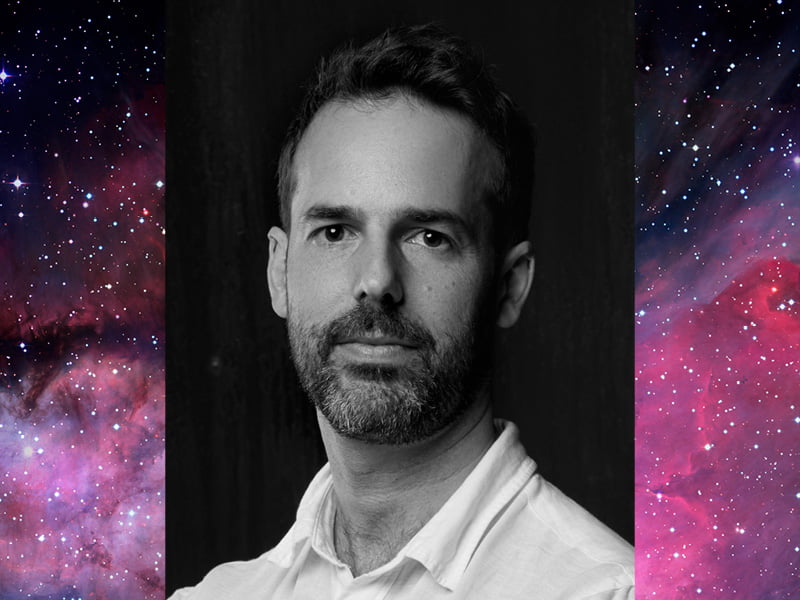Australia has an incredible talent base in the realm of Earth observation, according to the founder and chief executive of Office of Planetary Observation, Thomas Gooch.
Simply put, we are observing Earth like never before.
“Innovative space technology thrives when great research, leadership in ideas, being bold and not letting some of the ecosystem barriers stop us all come to the fore. We’re at the point of taking ideas to market and scaling them to be globally competitive,” Mr Gooch says.
What can we learn about planet Earth from the vantage point of space that might go undetected on terra firma?
“Given 20 years of (global political planning), things take time in terms of building on the shoulders of giants,” Mr Gooch said.

“There’s value [to space technology innovation] across hardware, robotics evolutions, mining, low-Earth orbit, in-space human habitation and the impacts on human physiology – a lot of learning is coming from that, in manufacturing alone.
“Humans are going beyond planetary boundaries, and with the future impacts of this including climate change, increasing temperatures, refugees and all the legal ramifications, Earth observations can start to understand the current and ongoing status of planetary systems.”
With its green infrastructure objective for the world’s 10,000-plus cities, the Melbourne-based Office of Planetary Observation (OPO), established in 2019, has already won the Startup Network annual Climate Tech Pitch Night 2022. It was also the first of only two invitations to the Microsoft Space for Startups Initiative.
Unlocking answers to the practical ways industry and government can support space development is given an authoritative voice through Mr Gooch’s complementary role as the Global Entrepreneurship Network (GEN) Australia Space Lead.
In that capacity, Mr Gooch has been working closely with Dr Chad Renando, managing director of Global Entrepreneurship Network (GEN) Australia and research fellow (Innovation Ecosystems) with the Rural Economies Centre of Excellence at the University of Southern Queensland to curate a number of cross-industry space focused conversations, culminating at the Global Entrepreneurship Congress (GEC) in Melbourne this September.
Mr Gooch said, “The GEC is fantastic because it focuses on incubating the Australian ecosystem in an international context — removing barriers so that innovators, locally, can have an impact, globally.”
This year, Mr Gooch says the topic of space innovation and how it impacts Earth is more prescient than ever. As an indicator, the GEC 2023 program offers three sessions dedicated to the topic, including ‘How to build a space start-up’, ‘ROI — Return on Orbital Investment: how to approach investing in space companies’ and ‘Beyond the Kármán Line: the role of Governments and Space Agencies in startup ecosystem development’.
“Maturing the ecosystem to continue our leadership of the global market needs to be on the table for the right conversations to take place. GEC is the ultimate forum to do that with global thinkers and players physically in the same place, at the same time,” he added.
In the lead-up to GEC 2023, a ‘Road to GEC’ webinar hosted by Dr Renando on Thursday, 27 July (AEST) brings together a panel of space-industry experts to discuss how going to space to help Earth can transform our world, and explore barriers and opportunities for government, research, private industry, philanthropy, investors and innovators.
The Road to GEC space industry expert panellists include: Xavier De Kestelier, head of design at Hassell; Stephanie Wan, associate director and space industry lead at KPMG; and Emeline Paat-Dahlstrom, cofounder and CEO at SpaceBase Limited.
“With a background in urban design I founded OPO steeped in 20 years of knowledge around how we build cities, which is a very creative industry, grounded in the realities of the constructed environment,” Mr Gooch said.
“We’re always innovating – taking our cues from nature, including bringing biodiversity and increasing planting of our urban forests. We draw on Earth observations to fuse this planning expertise with meeting customer needs.”
“How do you design something like a Moon village, considering the available materials, gravity and physics, as Hassell was employed to do by the European Space Agency? (Hassell) went through an incredible consultation process and I was lucky enough to see some of its models and talk with representatives in the UK recently.”
The Global Entrepreneurship Congress is held in a different city each year, with Melbourne hosting GEC 2023 from 19 to 22 September at the Melbourne Convention and Exhibition Centre. Around 4,000 delegates from across an international ecosystem – including investors, government policy-makers, entrepreneurs and established innovators – will come together for networking, learning, inspiration and sharing.
To register for GEC 2023 visit genaustralia.org/.
This article was produced by InnovationAus.com in partnership with Global Entrepreneurship Network (GEN) Australia.
Do you know more? Contact James Riley via Email.
